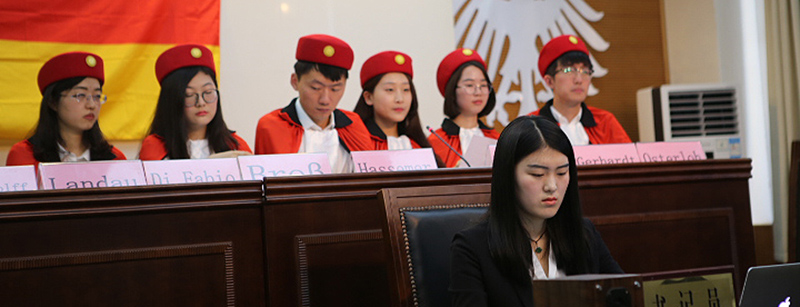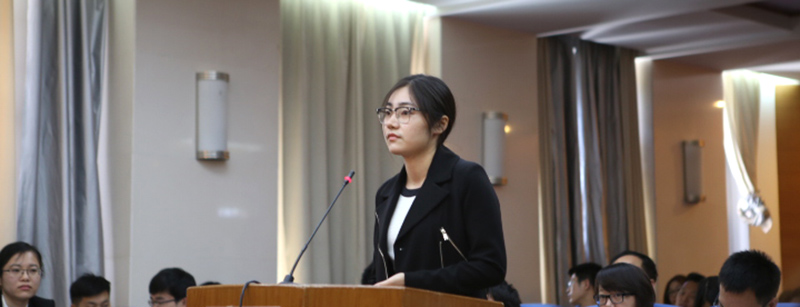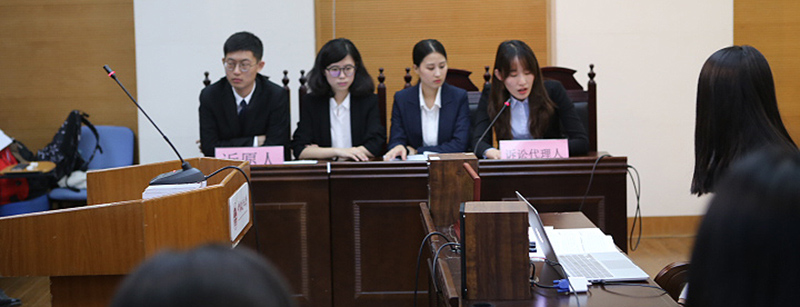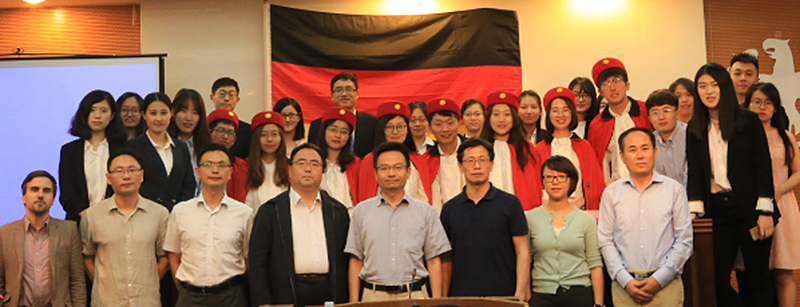Must consensual sex between close relatives be punished? Or does this violate the constitution? This question was at the centre of a mock trial at the China-EU School of Law on 23 May 2017. The trial was part of the Constitution and Constitutional Litigation course, which was evaluated as the ”Most Excellent Course” by China University of Political Science and Law students in 2016. The course is taught by Prof. Zheng Yongliu and Prof. Yu Fei. Students were asked to rule on this very sensitive issue.

The mock trial referred to a case of a brother and a sister which was brought before the Federal Constitutional Court of Germany in 2008. Students tried to demonstrate the full extent of the case. Before the trial began, a student playing the agent submitted the petition to the court. Three students performing as judges formed a collegiate bench to review whether the constitutional petition fulfilled all requirements to be accepted. Then one student as presiding judge struck the gavel and the mock trial officially began. Students performing as plaintiff and defendant elaborated their opinions for the judges. Then the judges focused on three controversial points and thoroughly and rigorously discussed these points. In the end, the eight justices ruled 4-4, which means that they ruled that punishing incest does not violate the German constitution.

After the two-hour trial several law professors from the China University of Political Science and Law gave feedback to the students: Professor Tian Shiyong, Director of the Law Education Research and Assessment Center, Professor Qin Aolei, Deputy Director of the Institute of Constitutional Law, Professor Zhang Luhao of the Faculty of Law, Xiao Baoxing, Assistant to the Dean of the Graduate School and Director of the Training Office, Professor Liu Fei, Chinese Co-Dean of the China-EU School of Law, and Dr Clemens Richter, European Executive Co-Dean of China-EU School of Law. Professor Qin told the students that they as legal professionals need to master the basic skill of combining social experience with legal rules in order to innovate. Professor Zhang Luhao said that the constitutional litigation mock trial can be carried out in the form of syllogism. Students should firstly figure out whether the constitution gives corresponding rights to citizens. Then they should verify whether the constitutional rights are violated. Finally, if the rights were violated, they should consider the question of how these rights could be restored. Professor Liu Fei pointed out that the student judges should improve their ability to control the trial and pay more attention on the details about the case. Professor Tian Shiyong said: “The process of learning law is to explore the legal knowledge. The mock trial is a method worth learning and spreading as it changes traditional teaching and gives each student the opportunity to participate in the teaching and learning process.” Xiao Baoxing expressed his congratulations to the students and professors and his gratitude for the efforts made by teachers and students. He said that the mock trial not only matched the trend of teaching reform, it would also lead the direction of teaching reform.

The Constitution and Constitutional Litigation course is a compulsory course which is set for all the first-year graduate students of the China-EU School of Law. This course combines the teaching in class with the training in mock court and it aims at helping students to get the feeling of actually using the Constitution by weaving practice into theory. The lecturer of this course, Professor Zheng Yongliu, shared his original intention to set class in this form at the end of the demonstration course. He said that the mock court was not just for increasing the interests of students for the class. More importantly, law was a major that is closely related to practice and it can only be fully understood in practice.
“What's learned from books is superficial after all, it's crucial to personally practice it,” student Yue Peng said afterwards. He said: “Only when we undergo this hard process, we can cherish the results. This mock trial let me gain a deeper understanding about the German constitution and constitutional trials in general.”

Author: Chen Chen (Double master’s student at the China-EU School of Law)
